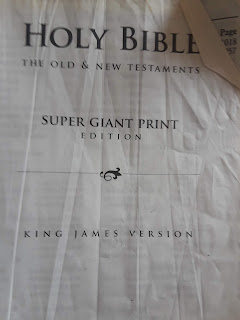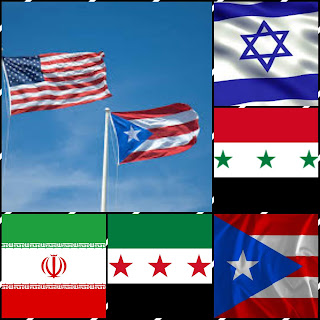What Easter Really Means
Does anyone know what Easter is really about?
I don't even know how Jesus being resurrected turned into bunnys and eggs.
I mean to get real honest Easter isn't even the true day of the resurrection because it took Jesus three days to rise from the grave correct?
Ya the math doesn't hold any water in my book so just to cover all bases how about celebrating the resurrection 24-7-365.
Why do you need a lock down date to celebrate it?
Your don't feel like honoring it the other 364 days?
If you believe in Jesus and the resurrection how come we're not teaching our kids that? Grandkids?
Have fun and enjoy the easter egg hunts, coloring eggs and all that but don't you think you should at least add the truth somewhere in there?
Even if you don't believe in God or Jesus it's still a event that came from the death of Jesus Christ.
Easter, also called Pascha (Greek, Latin) or Resurrection Sunday, is a festival and holiday commemorating the resurrection of Jesus from the dead, described in the New Testament as having occurred on the third day after his burial following his crucifixion by the Romans at Calvary c. 30 AD.
It is the culmination of the Passion of Jesus, preceded by Lent (or Great Lent), a 40-day period of fasting, prayer, and penance.
Most Christians refer to the week before Easter as "Holy Week", which contains the days of the Easter Triduum, including Maundy Thursday, commemorating the Maundy and Last Supper, as well as Good Friday, commemorating the crucifixion and death of Jesus.
In Western Christianity, Eastertide, or the Easter Season, begins on Easter Sunday and lasts seven weeks, ending with the coming of the 50th day, Pentecost Sunday.
In Eastern Christianity, the season of Pascha begins on Pascha and ends with the coming of the 40th day, the Feast of the Ascension.
Easter and the holidays that are related to it are moveable feasts which do not fall on a fixed date in the Gregorian or Julian calendars which follow only the cycle of the Sun; rather, its date is offset from the date of Passover and is therefore calculated based on a lunisolar calendar similar to the Hebrew calendar.
The First Council of Nicaea established two rules, independence of the Jewish calendar and worldwide uniformity, which were the only rules for Easter explicitly laid down by the council.
No details for the computation were specified; these were worked out in practice, a process that took centuries and generated a number of controversies.
It has come to be the first Sunday after the ecclesiastical full moon that occurs on or soonest after 21 March, but calculations vary.
Easter is linked to the Jewish Passover by much of its symbolism, as well as by its position in the calendar.
In most European languages the feast is called by the words for passover in those languages; and in the older English versions of the Bible the term Easter was the term used to translate passover
Easter customs vary across the Christian world.
Some include sunrise services,
Exclaiming the Paschal greeting
clipping the church,
Decorating Easter eggs (symbols of the empty tomb).
Exclaiming the Paschal greeting
clipping the church,
Decorating Easter eggs (symbols of the empty tomb).
The Easter lily, a symbol of the resurrection, traditionally decorates the chancel area of churches on this day and for the rest of Eastertide.
Additional customs that have become associated with Easter and are observed by both Christians and some non-Christians include egg hunting, the Easter Bunny, and Easter parades.
There are also various traditional Easter foods that vary regionally.
Have a great day.
God Bless,
Namaste
Magalina A Masso
God Bless,
Namaste
Magalina A Masso


Comments
Post a Comment